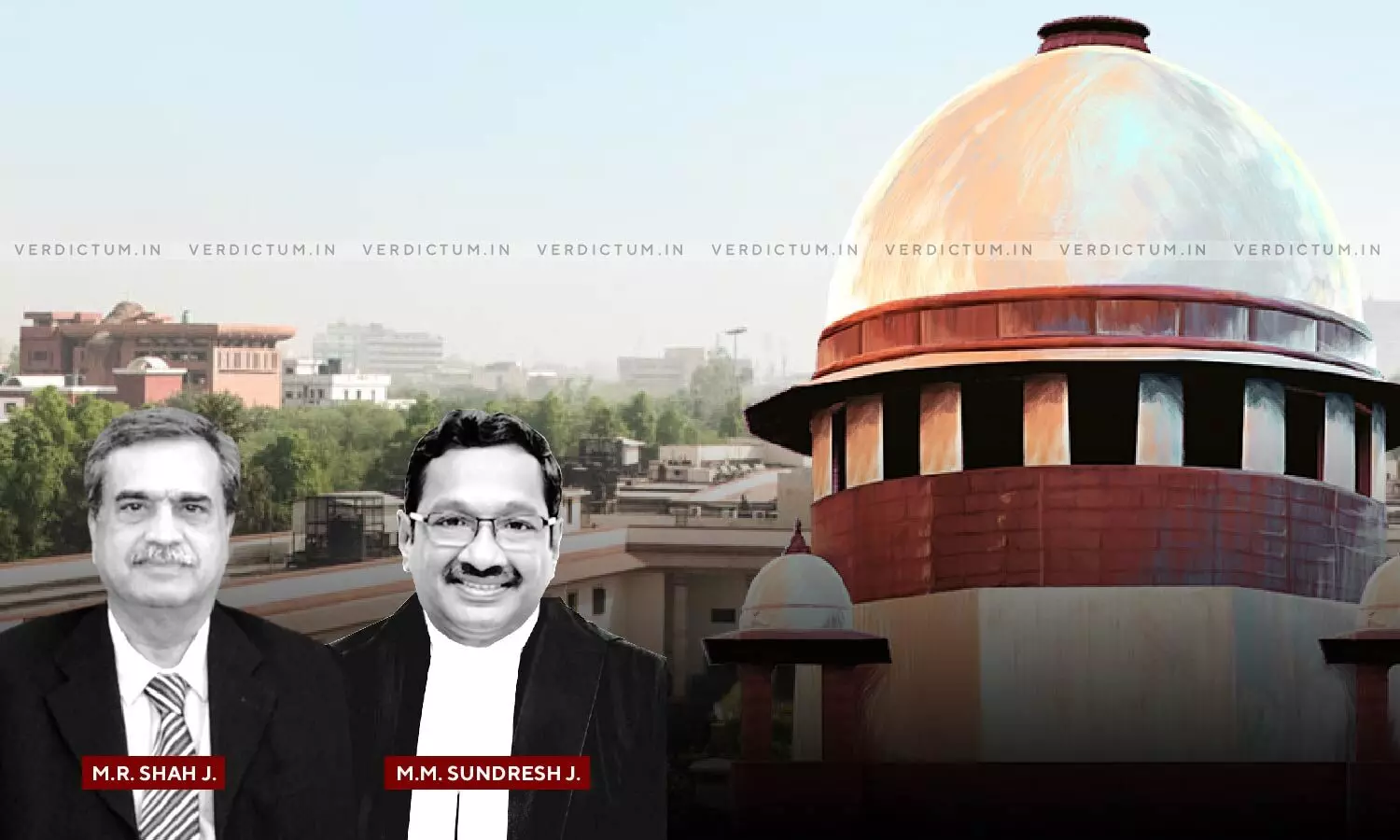
Subsequent Purchaser Of Land Cannot Claim Lapse Of Acquisition Proceedings U/s. 24(2) Of LA Act, 2013- Supreme Court
 |
|The Supreme Court has held that subsequent purchaser of land cannot claim lapse of proceedings under Section24(2) of the Land Acquisition Act 2013.
The Bench of Justice MR Shah and Justice MM Sundresh while allowing the appeal held that, "Under the circumstances and even accepting the case on behalf of the original writ petitioner that she might have acquired some interest on the basis of the Agreement to Sell dated 22.05.2016, being a subsequent purchaser and/or having acquired the interest in the lands in 7 question subsequently, she was not having any right to claim lapse of acquisition proceedings under Section 24(2) of the Act, 2013. Under the circumstances, the High Court erred in entertaining the writ petition preferred by the respondent No. 1 – original writ petitioner claiming lapse of acquisition proceedings under the Act, 2013."
The Bench answered the pertinent question as to what is the locus of the original writ petitioner, being a subsequent purchaser, to file the writ petition before the High Court challenging the acquisition and praying for declaration on the basis of the Agreement to Sell, which does not even inspire any confidence.
In this case, the lands in question alongwith other agricultural lands were notified to be acquired under Section 4 of the Land Acquisition Act, 1894, a declaration under Section 6 of the Act, 1894 was issued and award came to be declared by the Collector. The acquisition proceedings initiated by the aforesaid notification/declaration were challenged by the interested persons by filing various writ petitions wherein interim protection was granted by the High Court, but the said acquisition proceedings were upheld. Thus, the acquisition qua the lands in question attained finality
Advocate Manika Tripathy appearing on behalf of the appellant – DDA contended that the original writ petitioner had no locus at all to file the writ petition before the High Court challenging the acquisition and praying for declaration on the basis of the Agreement to sell which does not inspire any confidence.
It was submitted that even on merits, the Hon'ble High Court has erred in holding and/or declaring that the acquisition with respect to the lands in question has lapsed by virtue of Section 24(2) of the Act, 2013. It is submitted that the Hon'ble High Court has not at all appreciated the fact that the possession of the substantial portion of the lands acquired was taken over. However, with respect to small parcels of lands, the possession could not be taken over because of the pending litigations challenging the acquisition proceedings and relied on the Decision of this Hon'ble Court in the case of Delhi Development Authority Vs. Godfrey Phillips (I) Ltd. & Ors., Civil appeal No. 3073 of 2022, wherein it was held that the subsequent purchaser is not entitled to claim lapsing of acquisition proceedings under the Act, 2013.
Per Contra, the Advocate N.S. Vasisht vehemently submitted that considering the fact that neither the possession was taken over nor the compensation was paid/tendered, as rightly observed and held by the High Court, Section 24(2) of the Act, 2013 shall be attracted and, therefore, there shall be deemed lapse of the acquisition. Therefore, no error has been committed by the High Court in allowing the writ petition.
The Court observed that the Original Writ Petitioner claimed the right, title, or interest in the lands in question on the basis of the agreement to sell and as per the settled position of law, the agreement to sell by itself does not confer any right, title, or interest. Also considering the fact that the Agreement to Sell was of the year 2016 and that the notification under Section 4 of the Act, 1894 was issued on 25.11.1980, therefore, it is apparent that the original writ petitioner allegedly derived the interest in the lands in question much after the acquisition proceedings were initiated and therefore, the original petitioner is the subsequent Purchaser and therefore, has no right to claim lapse of acquisition proceedings.
Accordingly, the Court allowed the appeal and held that "the High Court has erred in allowing the writ petition and declaring that the acquisition with respect to the lands in question is deemed to have lapsed under Section 24(2) of the Act, 2013."
Cause Title- Delhi Development Authority Vs Damini Wadhwa & Ors.
Click here to read/download the Judgment